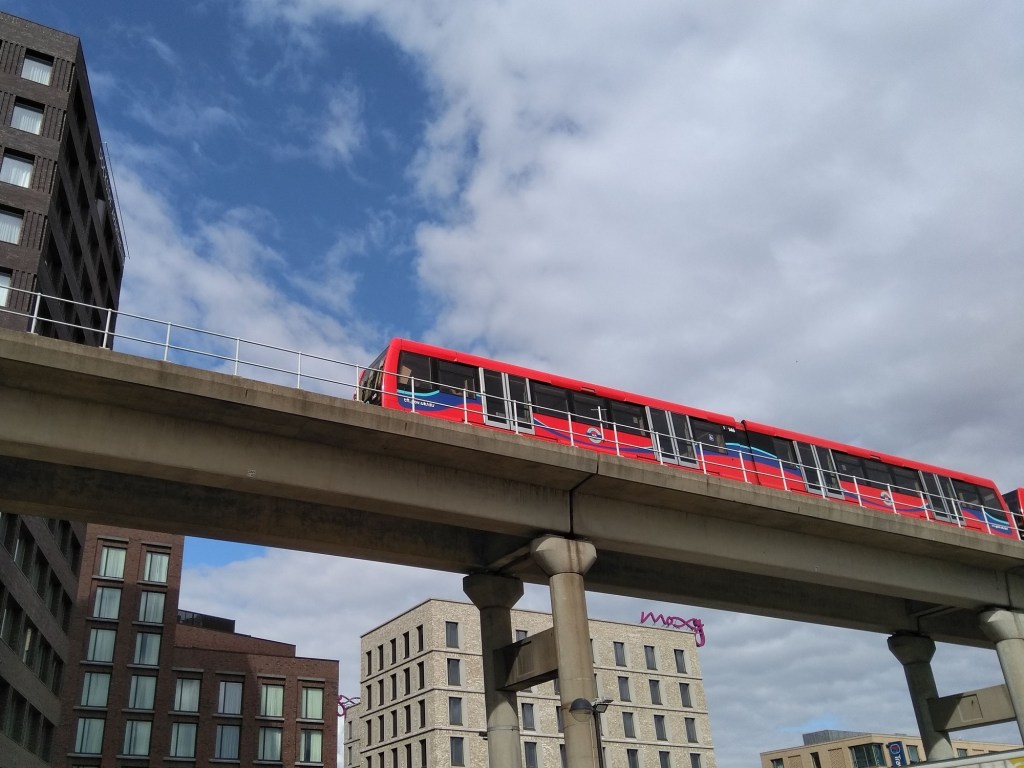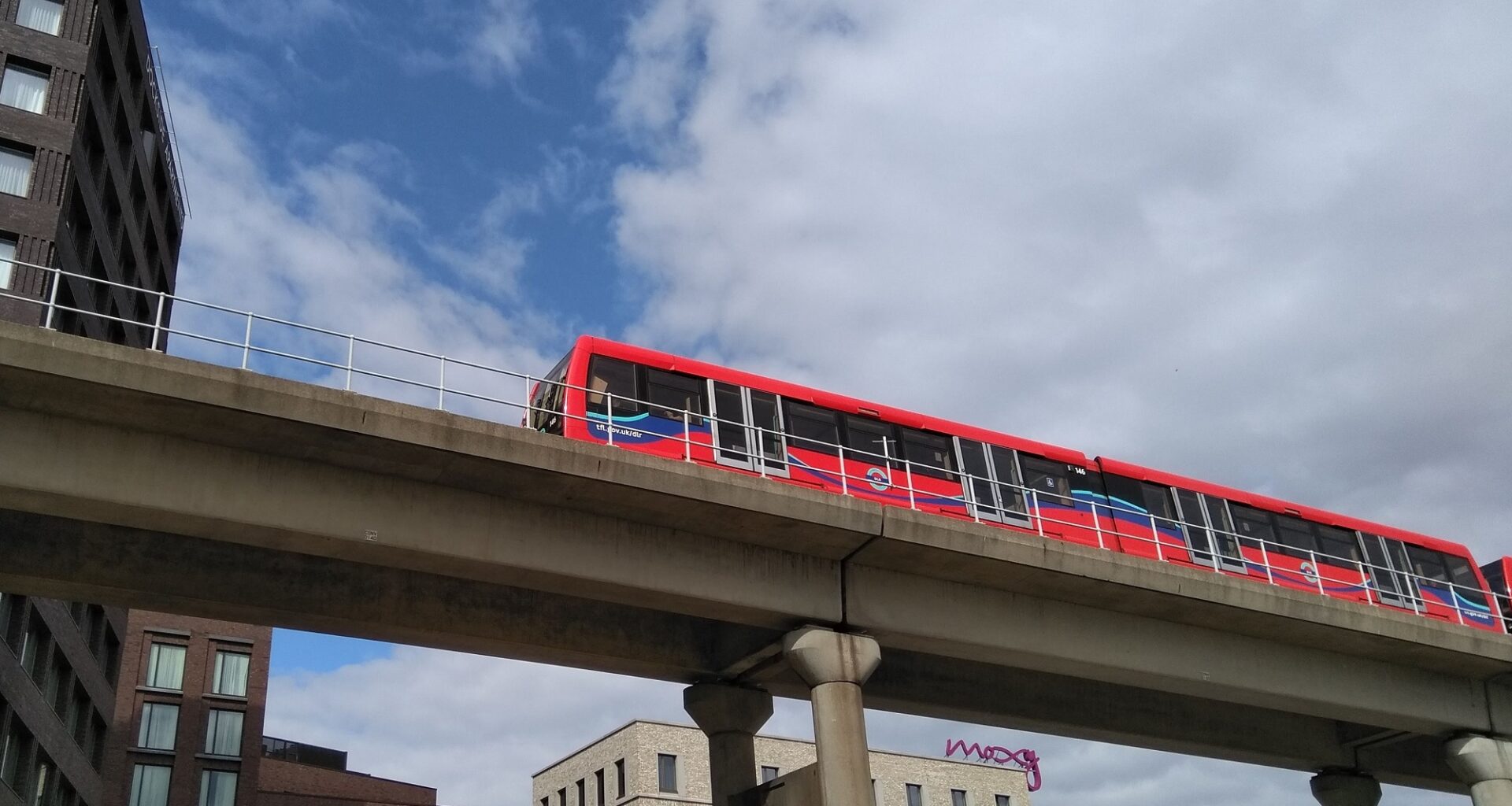City Hall still has to ask the government for cash to help pay for new tube and rail upgrades, causing delays to big projects, reports Kumail Jaffer, Local Democracy Reporter
 The Docklands Light Railway (DLR)
The Docklands Light Railway (DLR)
Mayor of London Sir Sadiq Khan must be given powers to tax tourists and businesses’ payroll in a similar way to Paris in order to fund infrastructure projects in the city, a new report has argued.
The French capital currently raises €7billion annually via a dedicated transport tax which imposes a levy of up to 3% on gross wages – effectively meaning employers have to pay the tax for every member of staff they employ in order to fund transport in the city.
The City of Paris is also able to charge tourists up to €15 for every night they stay, and also fully controls any revenue raised from parking.
London, meanwhile, had to scramble together funds for the Elizabeth Line through a small precept on business rates and taxing developers.
London Unchained, a report drawn up by Labour Together and the Yimby Alliance, argues that projects in the capital have been delayed, downsized and cancelled due to an inability to self-fund.
Ministers have now been urged to give Sir Sadiq Khan the powers to impose payroll and tourism taxes, as well as a new tax on the excess of a house’s value above a certain threshold.
More flexibility to raise council tax, provided funds will directly go to infrastructure investment, would also be handed over, as would the ability to deploy development corporations that could buy up land cheaply for future building.
In return, the mayor would not be able to appeal to The Treasury for funding for London projects.
“It is ridiculous that London, one of the richest economies in the world, has to come to the government with a begging bowl to fund the infrastructure it needs,” the authors say.
“The UK funds much of its infrastructure from a central pot of money in Whitehall. That means we waste time arguing about whether it’s better to invest in richer places like London so they can compete with New York, or to invest in poorer places like Birmingham to drag up their productivity to the national average.
“This paper’s core argument is that we can’t choose between investing in the south east or the rest of the country. We need to do both.
“To pay for all that, richer areas like London should have the powers and incentives to fund their own infrastructure, freeing up central government funding for the parts of the country that can’t yet stand on their own two feet.
“London should have the toolkit that a city like Paris has to tax the businesses and households that will benefit from new infrastructure. In return for those tools, London must use them to pay for its own infrastructure. It can’t be made to bring its begging bowl to Whitehall.
“If we just invest in the south east, we will fail to improve lives in the rest of the country. If we fail to invest in the south east, we sacrifice one of the most powerful wealth-generating engines on the planet.”
The authors cited the proposed Bakerloo Line extension, which is still yet to be given the green light, as a problem that the reforms can solve.
Transport for London (TfL) has consulted on proposals to first extend the line to Lewisham, and then Bromley, with the full project thought to cost around £13billion.
However, despite London offering to pay for much of the project through levies on businesses and housing developers along the proposed line, the authority is understood to be several billion pounds short.
TfL also wants to extend the Docklands Light Railway from Gallions Reach to Thamesmead.
In these cases, the report says, City Hall should have the powers to raise the funds himself instead of battling with The Treasury.
Sources close to Khan have noted that there are now plans to introduce a new local payroll tax or London-wide property tax. A London-wide tourist tax has also been mooted which is supported by the mayor and several boroughs.
A spokesperson for Khan told the Local Democracy Reporting Service: “The mayor welcomes the new era granted to London through the latest Devolution Bill, which means we can move forward with innovative new policies to boost economic growth and raise living standards in the capital as well as across the country.
“More devolution would allow us to unleash London’s economy further, and compared to other global cities we remain a heavily centralised country, with too much power still in the corridors of Whitehall.
“The mayor will continue working closely with the government to deliver more devolution for the capital as we build a fairer, safer, more prosperous London for everyone.”
The Treasury was contacted for comment.
Independent news outlets like ours – reporting for the community without rich backers – are under threat of closure, turning British towns into news deserts.
The audiences they serve know less, understand less, and can do less.
If our coverage has helped you understand our community a little bit better, please consider supporting us with a monthly, or one-off donation.
Choose the news. Don’t lose the news.
Monthly direct debit
More information on supporting us monthly
More Information about donations



